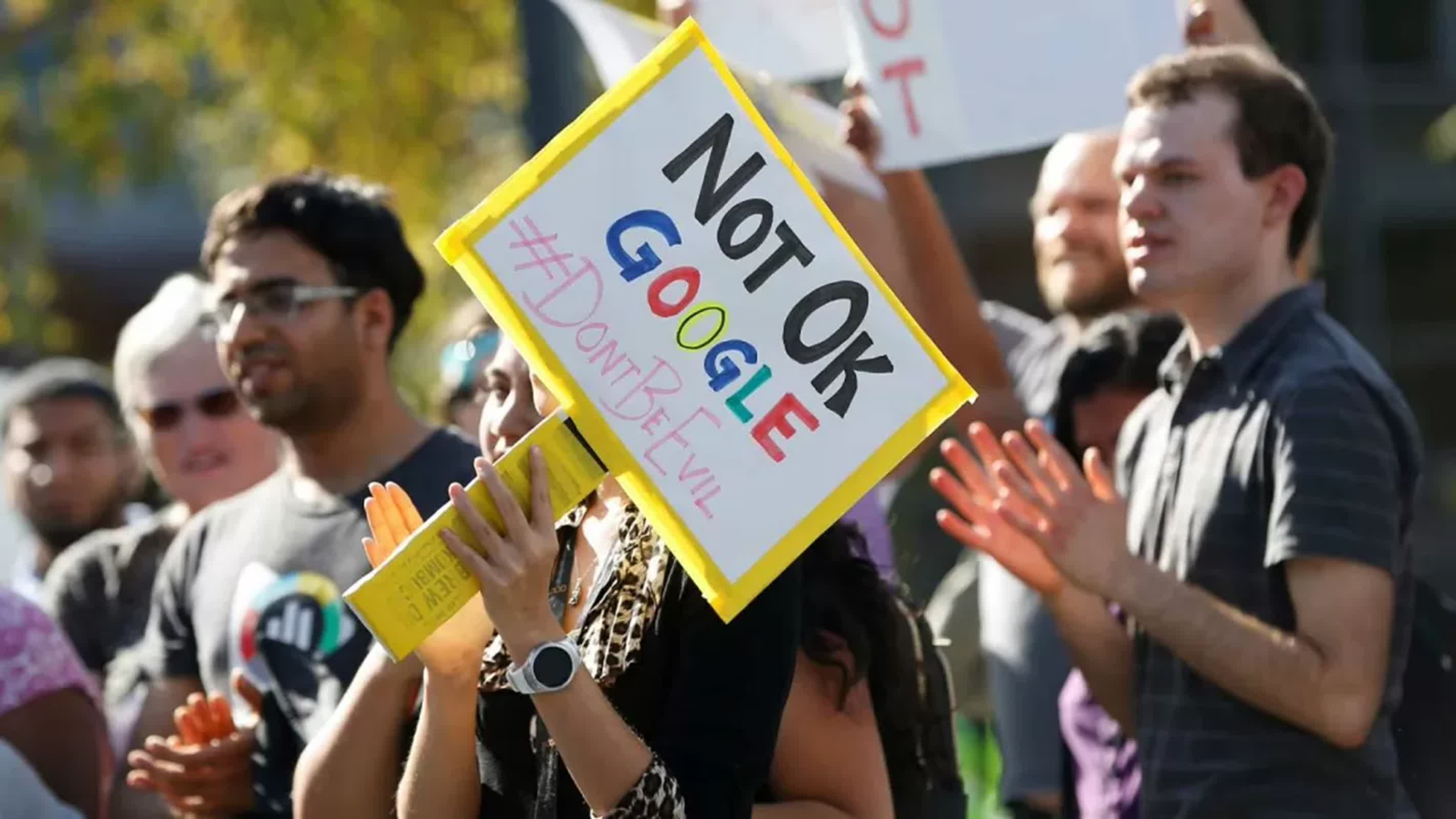Through the looking glass: As the tech industry continues to tighten control over employee speech and activism, a culture once defined by open dialogue and political engagement gives way to one marked by silence and fear of reprisal. "It's different now; employers feel they can get away with stuff," said a former Google employee.
In recent years, Silicon Valley has witnessed a sharp shift in how major technology companies respond to employee activism and internal dissent. Once known for a culture encouraging open debate and political engagement, the tech industry is now cracking down on workers who challenge company policies or voice concerns about controversial business practices.
Last month, two employees who interrupted an event with founder Bill Gates and CEO Satya Nadella to protest Microsoft's involvement in the Israel-Gaza war were quickly fired. Five years ago, by contrast, Microsoft divested from an Israeli facial recognition startup suspected of surveilling Palestinian citizens, partly in response to internal pressure.
Also read: Microsoft fires engineers over AI protest at 50th-anniversary event
This incident is part of a larger trend in the industry. Across the tech sector, companies are increasingly rejecting worker petitions, terminating employees who organize protests, and deleting critical posts from internal forums. Internet platforms have also warned against leaking information to the media, and some workers have lost their jobs as a result.

Other policies have been implemented to prevent employees from contacting regulators. Last year, some OpenAI employees filed a whistleblower complaint with the Securities and Exchange Commission, alleging that the company's restrictive agreements prevented staff from warning regulators about AI safety risks.
At the same time, the tech labor market has undergone dramatic changes, as mass layoffs, once rare among tech giants, have become increasingly routine. Since 2023, more than half a million tech jobs have been cut, according to Layoffs.fyi. This month, Microsoft announced a 3 percent reduction in its global workforce, following similar moves by Meta and Intel.
The crackdown on dissent has intensified during the presidency of Donald Trump. Executives at Google, Meta, and Amazon contributed millions to Trump's inauguration committee and have engaged with the White House in private meetings. Many companies have also introduced policies that align with the administration's agenda, such as eliminating diversity initiatives and reversing longstanding content moderation practices.
These changes might once have sparked significant activism among Silicon Valley's traditionally liberal workforce. However, aggressive management tactics and a weak job market have dampened employees' willingness to speak out.
"A decade ago, employees would discuss controversial political issues out in the open and on employee message boards and at all-hands meetings," said Nu Wexler, a communications consultant with experience at Google, Twitter, and Meta. Now, "the companies have either strongly discouraged that or banned it."
These tactics are having their intended effect. After Google announced in February that it would no longer avoid using AI for weapons or surveillance, internal message boards remained largely silent, a stark contrast to seven years ago when thousands of Google employees successfully pressured the company to cancel a Pentagon contract for AI-powered drone analysis.

Employees, though, have not gone completely silent. A group called No Azure for Apartheid was launched and is led by current and former Microsoft employees who are protesting the company's business dealings with the Israeli military and government. It is holding a protest this weekend.
However, Microsoft has come down hard on employees participating in such protests during company time. Microsoft fired at least five employees who protested during a town hall with CEO Satya Nadella. The workers, wearing T-shirts that read "Does Our Code Kill Kids, Satya?" were part of No Azure for Apartheid.
Google, too, fired more than 50 employees last year after protests against its cloud-computing deal with the Israeli government. CEO Sundar Pichai had previously warned employees not to use the company as a "personal platform" or to "fight over disruptive issues or debate politics."
